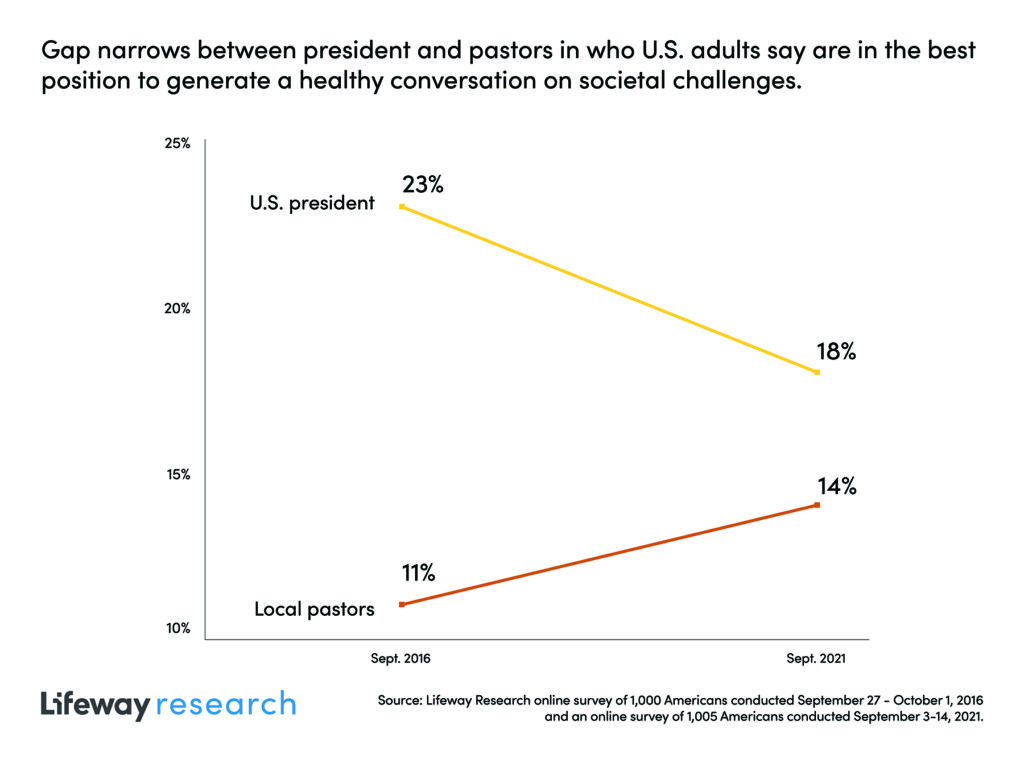
Americans Hold Varying Opinions
There are several key indicators of who Americans will view as holding the best position to generate healthy conversations on challenges in society. Males are more likely than females (10% v. 6%) to say business leaders are best positioned to lead these conversations, and those who are high school graduates or less are the least likely to say the same (4%).
Older generations are more likely to look to pastors, while younger generations are more likely to look to university professors to generate healthy conversations. Those 50-65 (18%) and those older than 65 (18%) are more likely to say local church pastors than those 18-34 (9%) and 35-49 (11%). And those ages 18-34 (10%) and 35-49 (10%) are more likely to choose university professors than those 50-64 (5%).
Those in the South, where America is saturated with churches, are more likely than those in the West to say they look to pastors to lead healthy conversations (16% v. 10%).
Views From the Pews
Even those who identify with a religious group or attend worship services hold varying opinions on where conversations about issues in society should be birthed. Catholics are more likely than Protestants to say healthy conversations should start with our elected president (22% v. 16%) or business leaders (12% v. 7%). Meanwhile, Protestants (22%) are more likely to say pastors of local churches should lead these conversations when compared to Catholics (9%), people of other religions (9%) or those who are religiously unaffiliated (3%).
Furthermore, those with evangelical beliefs are more likely than those without evangelical beliefs (32% v. 9%) to say healthy conversations should start with pastors.
Christians who attend worship services at least four times a month (30%) are the most likely to look to pastors to generate conversations about challenges in American society.
“Society certainly has its problems, and productive dialogue on these challenges has become increasingly hard to find,” said McConnell. “Many have preferred solutions to society’s ills, but with no one trusted to stimulate or moderate a healthy discussion around them, achieving consensus will be rare.”
For more information, view the complete report.
This article originally appeared here.











